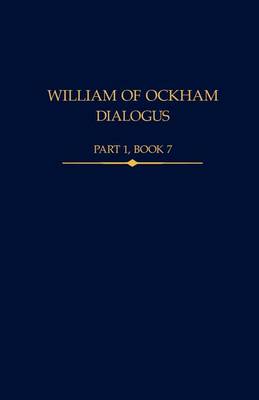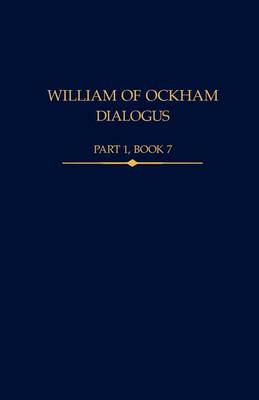
- Afhalen na 1 uur in een winkel met voorraad
- Gratis thuislevering in België vanaf € 30
- Ruim aanbod met 7 miljoen producten
- Afhalen na 1 uur in een winkel met voorraad
- Gratis thuislevering in België vanaf € 30
- Ruim aanbod met 7 miljoen producten
Zoeken
William of Ockham, Dialogus Part 1, Book 7
€ 152,95
+ 305 punten
Omschrijving
The Dialogus became an important reference text during the last two centuries of the Middle Ages, especially in the time of troubles associated with the Great Schism. It was printed twice in the later 15th century. One of its most elegant manuscripts was a text belonging to Pope Sixtus IV. Its ideal of an enlightened papacy ("monarchia de concilio peritorum") did not survive the Reformation, though many of its principles percolated into the writings of political philosophers, contributing along with other sources to the rise of constitutional liberalism and responsible government. This final book of Dialogus, Part I is not only a monument celebrating the possible emergence of cooperative political societies from the rubble of autocracies, but also an indication that Ockham's political orientation was essentially pragmatic.
Specificaties
Betrokkenen
- Uitgeverij:
Inhoud
- Aantal bladzijden:
- 378
- Taal:
- Engels
- Reeks:
Eigenschappen
- Productcode (EAN):
- 9780197267523
- Verschijningsdatum:
- 3/11/2023
- Uitvoering:
- Hardcover
- Formaat:
- Genaaid
- Afmetingen:
- 160 mm x 226 mm
- Gewicht:
- 703 g

Alleen bij Standaard Boekhandel
+ 305 punten op je klantenkaart van Standaard Boekhandel
Beoordelingen
We publiceren alleen reviews die voldoen aan de voorwaarden voor reviews. Bekijk onze voorwaarden voor reviews.










